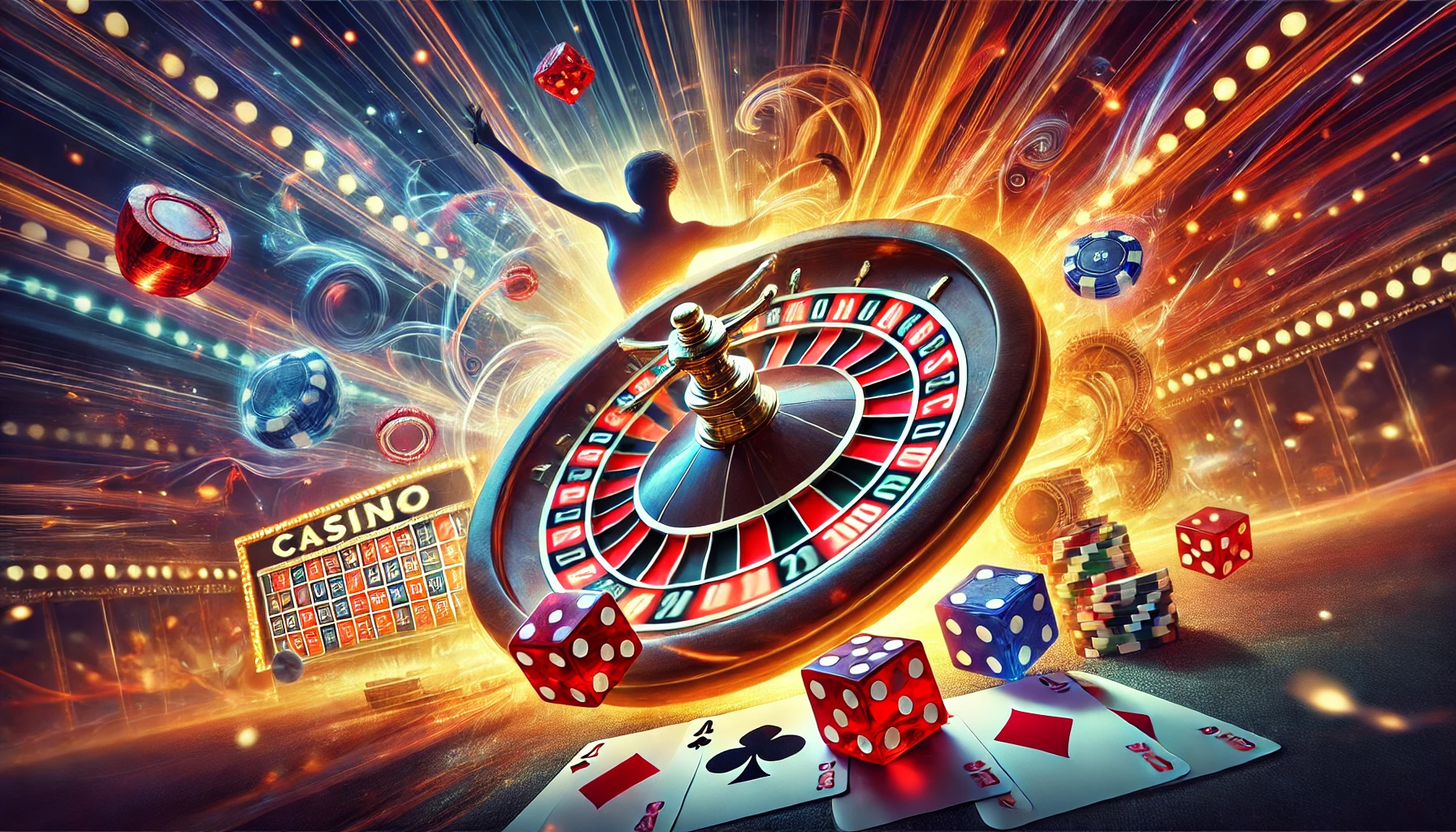The Monte Carlo method is a mathematical algorithm that can be used to calculate probability based on repeated random sampling. It can be used to break down randomness into figures and statistics, and casino operators use the Monte Carlo method to determine the RTP of their games.
However, the method is not only used by casinos. It is also applied in engineering, generating computer graphics, AI for games and physical sciences. The theory has expanded into all sorts of fields and industries, finding concrete mathematical patterns in what we would otherwise call random. We will look now at how the Monte Carlo method is used in casino games, and whether it is useful for players or not.
Simulation in Casino Games
The method relies on a tremendous number of trials, and the results can indicate lots of useful information. We can learn about the probability of winning, average wins, and even how these wins are distributed. These insights help us learn how probability works in casino games, but the Monte Carlo method also has some limitations. Namely, that we have to make assumptions based on these results.
Generally, casino owners use a similar approach when they test their games for fairness. Licensed online casinos must test all their games before they launch them to the public. There are no exceptions, and failure to meet the requirements can have serious consequences. The process is the following.
- A casino operator requests a game from a software provider
- The operator acquires the gaming solution
- The operator tweaks the game to meet their needs (payouts, game algorithm)
- Then, the game must be tested by a third party auditor
- Using the Monte Carlo method, they analyse hundreds of thousands of outcomes
- If the game satisfies the fairness criteria, it receives a seal of approval from the auditor
- The casino operator can then launch the game on their site
Random Number Generators and Fair Play
The game testing auditors check to see whether the casino games use Random Number Generators, a parameter essential to fair play. This means that the results are always randomised, and there are no tweaks to bring players near misses, or any other psychological tricks to hook gamers. RTP is determined by the online casinos – taken from the mathematical algorithms set by the developers and the simulation results from the game auditors.
RNG games constantly generate random outcomes. The algorithms don't stop counting between rounds or when the game is inactive – this ensures that from the second you press the Play button, you are always going to get a random outcome. RNG table games use the same set of cards as a live table, but the cards are reshuffled each round – rendering any card counting strategy futile.

How the Monte Carlo Method Works
To use the Monte Carlo method, you must first set the criteria, introduce the rules of a game, and then run your simulations. Starting with a simple example, in roulette you can try to identify the probability of winning on a straight bet. That is, a bet on a single number, to win 35:1. You only play with that one bet, so the criteria for winning are simple, the ball should land on your chosen segment. It doesn't matter if you change your number after each round or not, you can make simulations in both cases.
The next step is to run simulations. The more outcomes you have, the closer you will be to finding out the actual probabilities of each spin winning. When these casino games are tested under laboratory conditions, they may run through millions of simulations. These help reduce any mathematical anomalies such as a streak of losing or winning rounds.
You can then analyse the results to see the winning probability, average, and distributions. You can figure out how often the ball falls into your segment. How many times you need to win to turn a profit, and the frequency of those wins.
Understanding Probabilities and Setting House Edges
Casino operators need to use these simulators to test whether their games are profitable or not. The games must have some element of house edge to ensure the casinos can stay in business. They may use an algorithm on a game of video poker and then decide that the outcomes are too generous. In other words, if the game hits the market, they will lose money. So they can tweak the algorithms to ensure that the frequency of winning is slightly reduced. Or, they can keep the generator and instead of supplying a full pay paytable, use a short pay structure.
The goal is simply to ensure that they have a small edge. The frequency of winning at a game and the size of those wins are what casino operators can play around with. They may decide to use a higher volatile model with reduced paylines. Or, a solution that has a lower volatility, but can offer bigger wins.
The low volatility games are generally better for players with bigger bankrolls. They are not relying on winning frequently, but have the budget to keep playing until they win a substantial amount of money. Players with smaller budgets may opt for high volatility games. They don't need to wait long to hit wins, but for the most part, they are quite modest.

Using the Monte Carlo Method as a Player
The theory behind the Monte Carlo simulation is easy to understand. However, it is not really a method that players can accurately use. You would need to build a program that can simulate a copious number of outcomes to come up with the figures needed for analysis.
However, the Monte Carlo method has lots of applications, not just testing the RTP of a game. For example, you can use it to analyse your bankroll. By tracking your spending every time you play, you can analyse how much your gross spending and winning figures are. Using the distribution of your returns, you can calculate what percentage of your bankroll should be used each round to sustain longer gaming periods.
The Monte Carlo method can also be used to analyse sports results. At the very simplest level, you can calculate how many times a favourite wins their games, and use the data to work out the average amount that can be won betting on the team. Or, calculate the average odds required to make a profit betting on the favourite. You would need lots of data to make your findings more accurate. The Monte Carlo method is more accurate in sports such as baseball where the teams play over 160 games in a season. Rather than the 18 NFL games that teams play.
Breaking the Concept of Randomness
We find randomness difficult to grasp, as we can't really assign a strict physical probability on an RNG casino game. In a game of French Roulette, there are 37 segments on the wheel and before each round you know there is an exactly 1 in 37 chance of hitting a straight number. Or if you are betting on black/red, then 18 of the 37 segments work for your bet. When playing blackjack, the general chances of getting a 10 valued card is approximately 4 in 13 (disregarding previously drawn cards, deck size, etc).
We know there are 52 cards in a normal deck, without jokers. As there are 37 segments in European and French roulette, whereas American roulette has 38 segments. However, the outcomes of each round are completely random. The previous round does not impact what will happen next.
Slots are more complicated than these games, as we can't open the games and look at the individual segments, nor check out any of the parametrics behind a machine. We are left with assumptions, mainly based on given information such as RTP and volatility.
The Monte Carlo method certainly works to break down the notion of randomness, but it has its limitations. The accuracy gets better if you have a greater range of samples to analyse. You may need to spin the reels thousands of times to get a closer picture of the probability these games have. And still, the number you would get is not as precise as if you had simulated hundreds of thousands of spins.

How to Optimise Your Gaming Against Randomness
We cannot avoid the fact that randomness, and luck, are integral in winning casino games and sports bets. Probability can go as far as to help us optimise our bankroll or brace us for losses. But there are no givens here, no outcome is set in stone. Therefore, the betting strategies that we recommend are often steeped in protecting your bankroll and playing with rationale, not emotion.
You are not guaranteed to win money in gambling, no matter how well you play poker or how long you have been a sports betting expert. The best advise is to always accept the fact that your hand can lose, and never chase your losses. Create a budget plan for your gambling, and that way you can avoid going bust. If you do find yourself in a profit, know when to call it quits. Build your bankroll slowly, and look at the bigger picture rather than focusing on recent losses. Ultimately, by embracing the randomness in gambling, you will find more joy in your gaming.

 3 days ago
56
3 days ago
56







![Anime Reborn Units Tier List [RELEASE] (November 2024)](https://www.destructoid.com/wp-content/uploads/2024/11/anime-reborn-units-tier-list.jpg)
